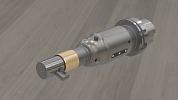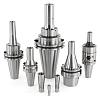Vice-President
- FMA
- The Fabricator
- FABTECH
- Canadian Metalworking
Finding funding for startups
New ventures require a good business plan, knowledgeable financers
- By Ken Hurwitz
- January 23, 2019
To begin 2019 I thought it would be a good idea to talk about how equipment lenders look at startup businesses and how these new ventures can find financing.
This is a question I get on a regular basis because there are not many options for young, growing businesses. When the market is busy, many opportunities exist for experienced and skilled individuals to grow within the manufacturing industry, but for some, the only way to truly grow is to start a business of their own.
If you look at truly successful Canadian manufacturers, you will notice many share a common thread: They all started out on the bottom. In many cases, these individuals emigrated from another country and started in the industry by working as a low-level operator or apprentice. However, they often have a very strong engineering background or develop it while working on the shop floor and hone it to a point where they eventually start running a plant.
At some point they all came to the same realization that they can either continue running someone else’s business, which for many is a secure and successful career, or open their own shop.
Start with a plan
Startups need a solid business plan detailing where the new company will operate, startup costs and required capital to get the business running, and anticipated sales for the first few years.
In terms of funding capital equipment, the normal inclination for a startup business is to minimize cost wherever possible. But when it comes to securing a lender for equipment, this may not be the best strategy.
The first thing any lender will look at is the equipment being financed. When it comes to machine tools, anyone with industry knowledge knows a good, brand-named machine tool has an excellent resale value, which in this case, is of the utmost importance. Because a lender’s first concern is exit strategy in the event the deal goes badly, it wants the comfort level that comes with knowing the asset can be resold with relative ease and in a short period of time.
Finance companies that concentrate in particular industries have in-house specialists who provide valuations. In the manufacturing industry these specialists look at the transaction, and if the equipment is a brand-named, quality machine tool, they will know they can recoup some money from the sale. Because transactions for new businesses typically require a deposit from the customer, the risk is mitigated even further.
It’s the knowledge of the equipment that is the main differentiator between doing business with an alternative lender with industry experience and a traditional lender, such as a chartered bank.
When it comes to getting financing from a bank, the quality of the asset, and in turn it’s perceived resale value, factors very little. It quite often means that it’s a struggle to get this type of transaction approved.
Growth of SMEs
In fall 2018 the Canadian government published the results of a survey on financing and growth of small and medium-sized enterprises (SMEs). The survey, designed by Innovation, Science, and Economic Development Canada (ISED), collected data on financing needs, growth, export activities, innovation activities, and owner characteristics of SMEs.
What I found most interesting was the survey’s findings about the availability of financing for these businesses.
“Access to financing can be an important condition for business growth, and even more so for the survival of startup businesses, especially if they have yet to establish a stable flow of income. Overall, startups had higher demand for external financing than non-startups, with 58 per cent of startups requesting some form of external financing compared with 51 per cent of non-startups,” the surveyors stated.
When asked why firms did not request financing, 81 per cent of startups reported that financing was not required compared with 89 per cent from non-startups. The two main reasons startups expressed for not requesting financing when needed were concerns that the request would be turned down (5 per cent) and that applying for financing was too difficult or time-consuming (5 per cent).
In my experience, startups get themselves into trouble early on by not ensuring they are properly capitalized, and the survey data validates this.
I find it unrealistic that there is only a 7 per cent difference (58 to 51) between startups’ need for external financing for versus established businesses’ need. I expect the true needs to be significantly higher, which means many new businesses out there are undercapitalized or cash-starved.
It also surprises me that 10 per cent of the responses for not finding financing indicated concern about being turned down or that the process was too time-consuming.
Finding financing for a startup business can certainly be a challenge, but it is important for new owners to understand the process and find a lender who understands and values quality machinery.
Ken Hurwitz is senior account manager, Blue Chip Leasing Corp., 416-614-5878, www.bluechipleasing.com.
subscribe now


Keep up to date with the latest news, events, and technology for all things metal from our pair of monthly magazines written specifically for Canadian manufacturers!
Start Your Free SubscriptionAbout the Author

Ken Hurwitz
41 Scarsdale Road Unit 5
Toronto, M3B2R2 Canada
416-499-2449
- Industry Events
MME Winnipeg
- April 30, 2024
- Winnipeg, ON Canada
CTMA Economic Uncertainty: Helping You Navigate Windsor Seminar
- April 30, 2024
- Windsor, ON Canada
CTMA Economic Uncertainty: Helping You Navigate Kitchener Seminar
- May 2, 2024
- Kitchener, ON Canada
Automate 2024
- May 6 - 9, 2024
- Chicago, IL
ANCA Open House
- May 7 - 8, 2024
- Wixom, MI




















